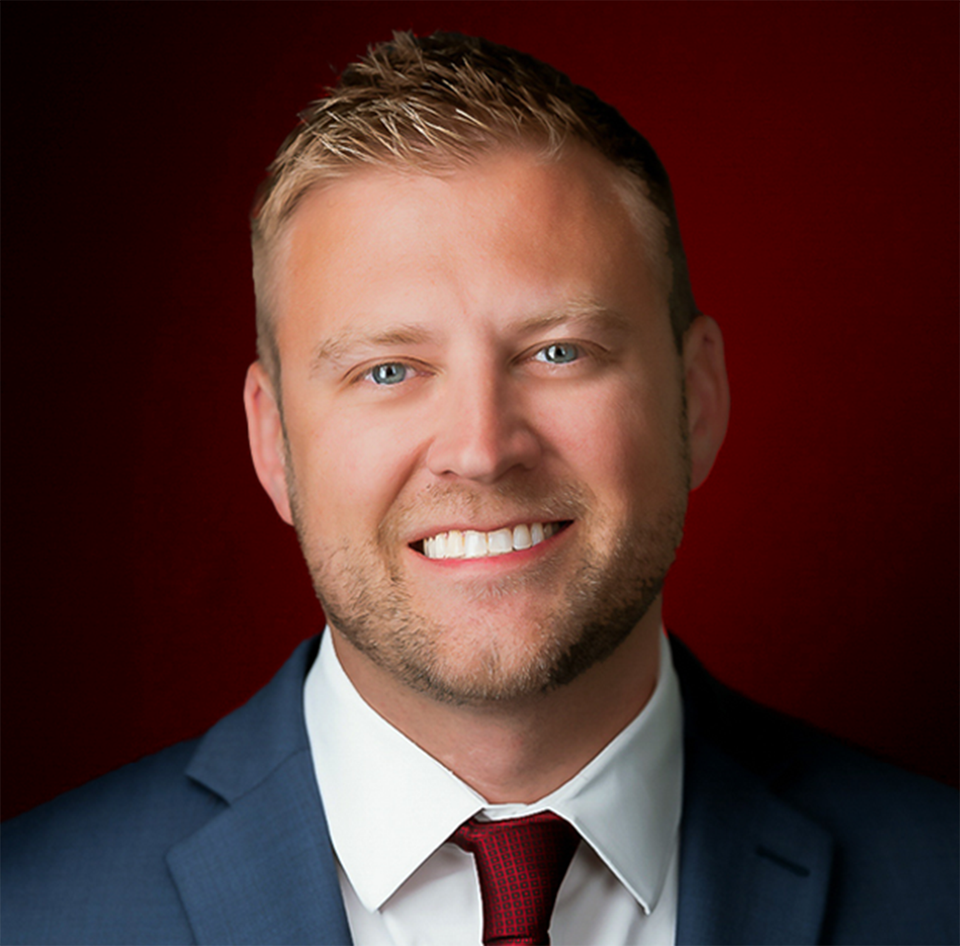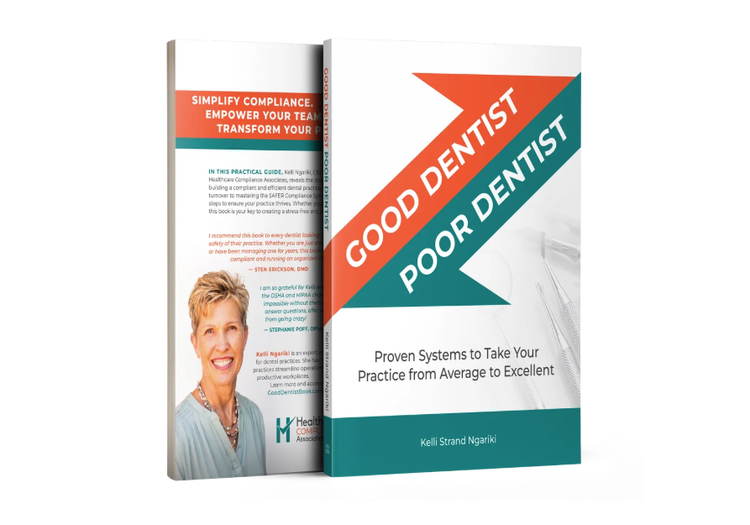‘Freedom to practice the way that we want and take time off’

A version of this Q&A first appeared in the Dental Bite Newsletter. Sign up to here to receive the weekly newsletter.
By Carrie Pallardy | for Dental Bite
Paul Etchison, DDS, spends two days a week on clinical practice. The rest of his time is devoted to Dental Practice Heroes. Through his coaching business and podcast, he seeks to help other dentists achieve more flexibility and profitability in their practices.
Dr. Etchison tells Dental Bite about his experience transitioning away from clinical practice to practice leadership and offers his advice for other dentists who are curious about changing their work schedules.
How did you make the shift from practicing four days a week to one?
A lot of it was spawned by burnout, working too hard, spending too much time at the practice, a lot of just taking a lot of things with the practice personally.
Essentially, it came in stages, with the first stage being going from four to three days a week. In our practice, we had gotten to a point where we couldn't see any more people. I was coming in early. I was staying late. I wanted to have some way to see more patients. The next logical step was to bring on an associate.
Personally, at the time, I never wanted an associate at my practice. I always wanted to be a solo doc. I didn't feel like anybody else could take care of patients the way that I could. I was just very in my own head, and it was something that was really scary to me. But it got to the point where I really felt like I didn't have any other choices because we had so many patients. And there was just no way to see them all. And I was really just burning out because I was working so much.
So, the first phase of going four to three days was me bringing on an associate. And I cut my schedule back to three days a week. Eventually, as time went on, I was able to bring on a second associate. And at that point, I cut myself down to two days a week and then eventually brought on a third associate to get where I'm at now.
It is worth noting, that at a certain point, when I was looking at my profit and loss, I realized that if I paid myself as an associate that probably 15% of my income that year came from me doing dentistry and 85% of it came from me being the owner of the practice. But yet I was spending 90% of my time at the practice doing dentistry.
So, a lot of it was me realizing that I am more valuable to this practice as a leader, as a trainer, as a manager, helping the team do things better, or listening to my team and taking suggestions and fostering collaboration. And that was a point in my career where we really started growing as a business.
It was never planned that way. I never began with the end in mind. It just unrolled, and the next logical step just brought me to the next logical step, which eventually brought me here. I'm just two days a month, and I'm going to be non-clinical probably within a year.
What did the timeline for that process look like?
So, the first associate was 2015. The second associate was 2018. The third associate was 2020. So, it was about a seven-year thing. I think if I did it with the intention of getting myself to that many days, I think it would have happened a lot quicker.
I would come into work and there were things that I wanted to take care of on the management side. There were people I wanted to work with, people I wanted to sit down with and train, some interpersonal issues I wanted to solve, essentially manage. And I just didn't have the time to do it because I was seeing patients. It was frustrating to me and overwhelming to me because I really wanted to take care of these issues. But I didn't have time because I always had patients.
So it always led to me saying, “OK, I need more time to manage the practice.” And all the while I'm growing the podcast and I'm growing my coaching company. So, as I was cutting my days down, I was also taking on more in my side gigs. I had to create more time by seeing less patients.
How did you approach finding associates?
It was a process. We've always used Indeed. But it was a challenge because I kept meeting people and I kept doing interviews and I kept saying, “I don't like this person.” They're not going to take care of my patients like I would. They're not going to be as good as me. The team's not going to like them like they like me. And eventually it got to the point where I was just getting frustrated that I couldn't find anybody.
I didn't settle on my first associate, but there was a little bit of a change in expectations on my end. I had to realize I'm not going to find a carbon copy of me, but I am going to find somebody that cares about patients, has a great attitude and somebody that I can help clinically to get to the level I was. So, it was a little bit of a shift in my mindsetI had to be comfortable that it was going to be different. It wasn't going to be identical to me. It was going to be different, but that didn't necessarily make it bad. So, that was a process of relinquishing that control.
I went through it and my team went through it with me because they were saying the same things. The new doctor is not you. They do not talk to their patients like you do. But we were at a point in the practice where we had to grow. We didn't have a choice.
I think we take such great care of our patients, there was no way to keep it small. We were just growing organically via just so many referrals from our existing patients. We were doing something that was special in our community. So, we grew really fast because of it.
Now looking back, we are helping so many more people, which is great, and that's what I love. I've been able to scale this level of care to a larger practice and still keep a good culture and a good patient experience.
What does your schedule look like now? How do you balance your clinical work with the podcast and your coaching business?
Mondays, Thursdays and Fridays are dedicated to the podcast and coaching. Tuesdays and Wednesdays are typically my days that I'll be at the practice.
About five years ago, I stopped seeing new patients because I just wasn't doing general dentistry anymore. I was only doing implants, surgery and orthodontics. I've always just loved doing ortho. I've always just been drawn to that.
So I stopped seeing new patients. I stopped checking hygiene. Over the years, I eventually just decided I didn't want to do any more surgery or any more cosmetics. And I would say the last three or four years, I've only been doing ortho. That was the nice thing about the way that I set up my practice. It allows me to only do the dentistry that I liked doing.
It was me just trying to find what really brought me joy and just really leaning into the things that I liked doing and stopped doing the things that really stressed me out. For me and my personality, that ended up being ortho.
I stopped taking on new cases about nine months ago. Ortho cases typically last two years. So, I probably have another year to go.
What kind of clients do you work with in your coaching business?
My clients are people who want to own a practice but also not be handcuffed to it, people who really believe that you can scale a dental practice just like you can scale any other sort of business. And my goal is to not make my clients non-clinical. My goal is to give them freedom
I find it very difficult when we are told to begin with the end in mind because that never worked for me. I never planned that far ahead, and I just don't think a lot of us can plan that far ahead. But if we can create the flexibility and freedom in our practice via systems and protocols and processes, we then have that freedom to practice the way that we want and take time off.
If I wanted to show up next week and start working four days a week again, I have the flexibility to do that as well.
So, the people that I work with are people that truly believe that's possible through the way that we run our business and creating structure.
I think it's unfortunate a lot of us dentists don't really see that that's possible. But there's so much inefficiency in all of our practices. It's very easy to get to a level of profitability that allows you that flexibility to take more time off and spend more time with your families.
It's cliche, but life is fast. I have two daughters. One is 14. So, she's going to be in college in four years. And my other one is 10. You feel like you have unlimited time with them, but now that she's going into high school next year, I'm realizing: Wow, it really did go by fast like everybody said. So, I'm making sure that I am home with them as much as I can be and as much as I want to be.
And when we get to that empty nest stage with me and my wife, I don't know what the next stage will be. If I'll be practicing more then or if I'll own more businesses or I'll own more practices. I'm not sure what I'll be doing, but I will have the flexibility to decide once I get there, and that's what we're essentially building for people.
What advice would you give to overwhelmed dentists who want to change their schedules but don’t know where to start?
I would say for an overwhelmed dentist, you really need to put in the time to sit and think. We get so busy doing that we don't sit down and we don't do the planning that's necessary to get us to that next step.
Some of the biggest growth parts in my career as far as personal growth and giving myself more freedom in the practice, it all came from me sitting in a quiet room with a notepad. My suggestion would be to write it down. What really overwhelms you? And then also write down what are the things that bring you joy.
I had worked with a life coach at one point and she asked me in any given week, ‘What percentage of your activities bring you joy, and how much really makes you miserable?’ And I said that maybe 15% brought me joy and 85% made me pretty miserable. And we wrote down all those things that I didn't like doing.
A lot of those things were things that I said, ‘Well, I'm the owner. Nobody else can do this.’ But you can delegate anything. If you make this list, you now have an action list of things that you want to do less of. You also have this list of things that bring you joy that you want to do more of, and then it's just strategically aligning your life and your processes so that you can set that up and actually execute it.
Responses have been edited for brevity and clarity.
Don't be a stranger.
💠 Reply to this email to connect with our team.
💠 Forward Dental Bite to your colleagues.



